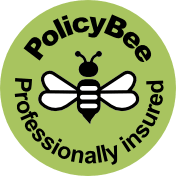SEO companies that use link farms to gain placement – a good or bad idea?
Google started the trend, but more and more search engines are following suit and using link popularity as an important part of their ranking algorithms. Many webmasters have responded by joining link farms and stuffing their sites with as many links as possible. This worked for a while regarding site placement but now the search engine designers are getting wise to this tactic. It is fact that not all links are not created equal. In fact, bad linking strategies may get you banned from some engines.
Popularity Doesn’t Grow On Farms
A link farm consists of sites that link to other sites for the sole purpose of increasing their link popularity score. Unlike perfectly valid links to web sites with related information, sites that utilise link farming contain links to sites totally unrelated to your business. This practice is also referred to as link stuffing.
Google’s programmers hates link farms and there search engine’s algorithms label the links they generate as spam. In fact, Google hates them so much that some sites get removed from the index if they’re affiliated with link farms. Some webmasters are getting so paranoid that they are considering removing all outbound links from their sites – something which will tend to negate the very essence of using the web – hyperlinks to related information.
Search Engines Take Hard Line On Link Stuffing
Search engines have gotten wise to the ‘link spamming’ techniques using by link farms and are now taking a hard line against them.
AllTheWeb’s spam policy is to:
disregard Link Stuffing when building the index and computing static rank, and to reduce the static rank of the documents containing it.
Google warns against “artificial linkage” (translation: link farms and link stuffing) and warns that if you link to spam sites, Google’s algorithm may penalize your site.
AltaVista’s spam policy warns that sites may be deleted from the index if they “contain only links to other pages.”
Inktomi’s editorial guidelines warn against “excessively cross-linking sites to inflate a site’s apparent popularity.”
Search engines won’t penalize you for good links, but they’ve gotten pretty good at recognizing bogus ones and are quick to punish sites that try to spam them with unrelated links.
This is an overreaction that decreases the site value to visitors and hurts the Web in general because cross-linking is a basic tenet of the Internet. Links are fine – even encouraged – if they are related to your topic, but link farms rarely provide useful content to visitors.
If your site is devoted to your favourite pop band and you include links to the band members’ personal sites, other fan sites, and links to stores that sell the band’s music, that’s not a link farm. You’re providing access to other sites that will probably interest your visitors.
But if you signed up with a so-called SEO service that promises to generate two hundred inbound links to your site only if you agree to add two hundred outbound links in return, then you’ve created a link farm. Instead of linking to related information of value to your visitors, you’re instead sending them to sites about herbal supplements, children’s clothes, pet rats, and other totally unrelated (possibly X-rated) topics.
Use Effective Linking Strategies
We can sum up a good linking strategy in a single sentence. “Link to related sites that offer content, products, and services that will help and interest your visitors“.
It’s really easy to do:
|
A good linking strategy will help turn your Web site into an authority on a particular topic. Visitors will tend to come to you for information and search engine spiders will gobble up your content. You won’t have to spend time chasing after good links, they’ll come looking for you.
Worried about other search engine promotion techniques that might hurt more than they help? Retiarius Internet Design can help you sort through various search engine do’s and don’ts. We provide a cost-effective, personalised, friendly service to help boost your site to the top of the rankings.

